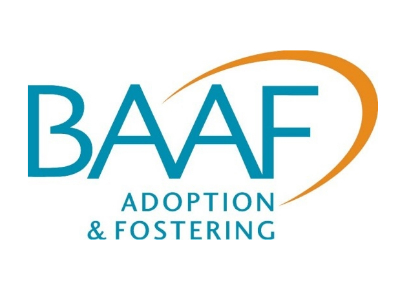
A collapse in the adoption placement market, as well as poor financial discipline, caused the sudden failure of the British Association of Adoption and Fostering (BAAF), according to an administrators’ report.
Fundraising, the Be My Parent service and Adoption Activity Days all operated with significant deficits in 2014/15, the report said, and making up the deficit in the approved 2015/16 budget was made more difficult because “the market in adoption placement had collapsed”.
Annual numbers of placement orders have fallen 36% since the Re BS judgement in 2013, and this is said to have had an impact on the charity’s operations.
The administrators, Smith & Williamson, said it also appeared that the charity’s restricted and unrestricted funds were not generally segregated. “This was in spite of assurances given to at least one donor that they were,” they said.
‘Significant weaknesses’
The report, seen by Community Care, includes the administrators’ statement of proposals to creditors who are due to meet on 9 October, and details the story behind the charity’s collapse.
BAAF closed on 31 July, and a number of its functions – including research, policy and development, the National Adoption Register for England, the Independent Review Mechanism (England), National Adoption Week, and Adoption Activity Day – were bought by Coram and transferred to a new entity, CoramBAAF.
A review of the charity’s financial systems and forecasts, commissioned by chief executive Caroline Selkirk (who was appointed in September 2014) and its treasurer, highlighted that BAAF had a lack of up-to-date comprehensive financial information, a weakened balance sheet position in February 2015, and “significant weaknesses in the finance function”.
Assurances
The report said a board meeting in March was assured that “despite the poor trading performance in 2014/15, the apparent use of restricted funds for other proposes and the breaching of the reserves policy… BAAF’s liquidity and cash-flow remained healthy, but that this should not create any false level of assurance”.
The administrators were contacted for insolvency advice in June, at which point the charity’s cashflow forecast indicated that it was “likely to have insufficient cash to meet its ongoing liabilities in August 2015 and thereafter”.
By this time BAAF chairman Anthony Douglas (also chief executive of Cafcass) is said to have had “informal discussions with a number of parties with a view to either securing emergency funding or to effect a form of strategic partnership”, but only one of these expressed interest.
Smith & Williamson also undertook research to identify other potential parties to take part in a restructuring, but none were identified with the “willingness and ability to provide a realistic solution”.
BAAF’s functions in Scotland have transferred to a new body, called Adoption and Fostering Alliance Scotland, it was announced earlier this week. In Wales, the National Adoption Service has taken over functions formerly run by the charity.


 Bournemouth, Christchurch and Poole
Bournemouth, Christchurch and Poole  Hampshire County Council
Hampshire County Council  Lincolnshire County Council
Lincolnshire County Council  Norfolk County Council
Norfolk County Council  Northamptonshire Children’s Trust
Northamptonshire Children’s Trust  South Gloucestershire Council
South Gloucestershire Council  Wiltshire Council
Wiltshire Council  Wokingham Borough Council
Wokingham Borough Council  Children and young people with SEND are ‘valued and prioritised’ in Wiltshire, find inspectors
Children and young people with SEND are ‘valued and prioritised’ in Wiltshire, find inspectors  How specialist refugee teams benefit young people and social workers
How specialist refugee teams benefit young people and social workers  Podcast: returning to social work after becoming a first-time parent
Podcast: returning to social work after becoming a first-time parent  Podcast: would you work for an inadequate-rated service?
Podcast: would you work for an inadequate-rated service?  Family help: one local authority’s experience of the model
Family help: one local authority’s experience of the model  Workforce Insights – showcasing a selection of the sector’s top recruiters
Workforce Insights – showcasing a selection of the sector’s top recruiters 

 Facebook
Facebook X
X LinkedIn
LinkedIn Instagram
Instagram
I think there needs to be some honesty and clarity from BAAF and the administrators. Why are they not talking about the massive whole in the pension fund that was potentially the main reason for their demise?
Pension hole no different from so many other charities/ organizations and under control but it meant another organization ( including Coram) would not want a strategic partnership which could have saved all staffs jobs and UK wide role of BAAF. Of course no one wanted to take on pension deficit. But most ( not all) BAAFs services were on budget and much more could have been saved. Why on earth did BAAF trustees not consult BAAF senior staff And launch an appeal? If they did not think the finances were well managed(? where’s the evidence?) why didn’t the trustees and administrators talk to the auditors? Outrageous. . 14/15 was a difficult year with Be My Parent making a loss due to drop in placement orders and costs of adoption register. With a strong will, trustee support and robust CEO leadership BAAF could have survived . Such a loss to the sector and to children .